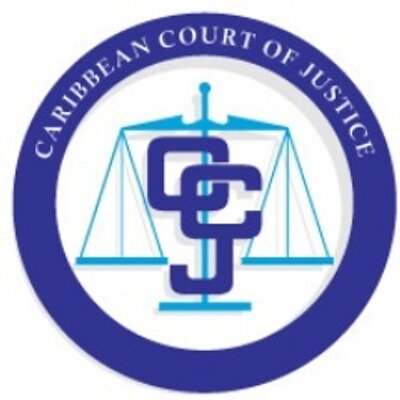The Caribbean Court of Justice (CCJ) has found that Jamaica—as a CARICOM Member State—has breached provisons of the Revised Treaty of Chaguaramas (RTC) which is intended to protect products manufactured within the region, by imposing a 40% tariff on-like products being imported from external sources.
The Court pointed out Jamaica’s defiance of the RTC, noting that even though the breach was initially caused by a misclassification of the products at the centre of the litigation, it thereafter still failed to impose the 40% common external tariff (CET) on imports coming from extra-regional sources.
Further, the Court found to be baseless, Jamaica’s claims of the particular product being produced right in the region by member-state Dominica, being of poor quality.
The case before the court’s Original Jurisdic-tion had been brought agaist the State of Jamaica by Dominican company—DCP Successors Limited — for breach of Article 82 and paragraph 18 of Schedule III of the RTC by not imposing the 40% CET on soap noodles imported from Malaysia and Indonesia.
DCPS (the Claimant), is also a manufacturer of soap noodles and soap products.
In a press release of the court’s ruling delivered on Wednesday, it was noted that the soap noodles may be moulded into various soap products including but not limited to laundry bar soap.
Since DCPS’ soap noodles and its other soap products are manufactured within CARICOM, those goods are eligible for and receive preferential treatment compared to similar goods imported from non-CARICOM States.
Therefore, regional importers of DCPS’ products do not pay the 40% CET established by CARICOM on soap products. DCPS exports its soap noodles and other soap products, which they manufacture, throughout the region.
In Jamaica (the Defen-dant), there are also soap-producing companies operating there. It was noted, however, that the producers there, do not manufacture soap noodles and as such have to import soap noodles from Malaysia and Indonesia.
In Jamaica, those soap producers add fragrances, oil extracts, moisturisers, and colour to the imported noodles, reshape them into various forms, repackage them, and then sell the final product.
The Court said it was found that Jamaica was not imposing the CET on the soap noodles it was importing from Malaysia and Indonesia which had initially been based on a misclassification of the tariff under which the soap noodles fell.
After DCPS complained about this classification, Jamaica sought and received advice from the World Customs Organisation which confirmed the misclassification.
Jamaica the Court noted, however, continued to exempt the imported soap noodles from the 40% CET which ought to have been applied, even after the error in classification had been brought to its attention.
The exemption was firstly based on the contention that the Jamaican soap products were community goods eligible for preferential treatment, and latterly, that it was based on a domestic exemption regime—the Productive Inputs Programme—established by Jamaican legislation and applied to the Jamaican soap producers.
DCPS attempted to engage soap producers in Jamaica to supply them with soap noodles. However, the Jamaican soap producers took issue with the quality of DCPS’ soap noodles.
After hearing the case presented by the parties, the Court said it found that it was “not permissible to grant duty exemption on soap noodles imported from extra-regional sources when the same or similar products are produced in CARICOM in adequate quantities.”
The application of what it said is “tariff protection” on such items, the Court added is “consistent with the objectives of the RTC and, in particular, with Schedule III of the RTC.”
That Schedule the Court specifically said, “elaborates a special regime for oils and fats, which includes soap and soap noodles;” while noting that the Council of Trade and Economic Development (COTED) may suspend the 40% CET on soaps and soap noodles when there is an insufficient supply in CARICOM.
The CCJ further went on to note its finding that the wording of Jamaica’s exemption regime was consistent with the principle that, “before granting exemptions, Member States should first source from within CARICOM.”
On this principle, however, the CCJ said that “Jamaica failed to consider or assess, whether soap noodles were available in adequate supply from regional manufacturers before granting the CET exemption to Jamaican soap producers according to its exemption regime.”
The Court held that the evidence given proved that DCPS could supply the entire CARICOM Single Market with soap noodles, and that the soap noodles manufactured by it “were not rancid or otherwise unfit for purpose,” as claimed by some Jamaican soap producers.
In all the circumstances, the Court accordingly found that Jamaica was not in compliance with Article 82, and Paragraph 18 of Schedule III of the RTC when it did not impose the 40% CET on soap noodles imported from extra-regional sources.
Regarding Jamaica’s alleged breach of Article 84 of the RTC, the CCJ accepted counsel’s concession that the Jamaican soap products could not be characterised as goods of Community origin.
Jamaica had relied on a defence of good faith concerning the non-compliance, but the CCJ held that good faith, even if present, could not excuse responsibility for the violation.
The Court awarded costs to DCPS and will hold a case management conference to consider how the matter will proceed for determination of the question whether, and if so, what other possible remedies or relief are due to DCPS.
The case was presided over by President of the court, Justice Adrian Saunders, along with Justices Winston Anderson, Maureen Rajnauth-Lee, Denys Barrow, Andrew Burgess, Peter Jamadar and Jacob Wit.
Justice Wit died a few weeks ago following ill-health.
DCPS was represented by attorneys B. St Michael Hylton KC, along with Sundiata Gibbs and Timera Mason.
Representing Jamaica were attorneys Stuart Stimpson, and Sherise Gayle.
Meanwhile, CARICOM which appeared amicus was represented by Senior Counsel Lisa Shoman along with Dr Chantal Ononaiwu, Radha Permanand and O’Neil Francis.


